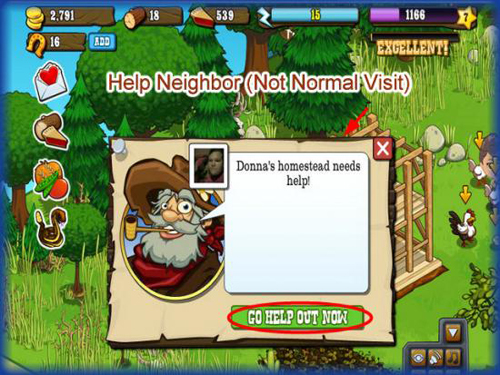业内话题:游戏发行商是否应慎用病毒式传播功能?
如果有个好友刚买了一辆新车,他然后就不断怂恿你也去买辆车,这时候你感觉如何?
有些玩家向游戏发行商提出了增加这种社交功能的请求,但这种强迫性、病毒式传播渠道真的会损害玩家的游戏体验吗?很有可能。
EA Sports去年推出的《Tiger Woods》、《NHL》和《MMA》等热门游戏就采用了“邀请好友”功能,它会以一些游戏经验值和其他“不容错过”的奖励,让玩家发送这种编辑好的系统信息:
“快来下载《Tiger Woods》!它有全新的经验值系统,可以让你赚到更多可以玩遍整个游戏版本的经验!”
也许有人会认为,这种做法并不稀奇,它在好几年前就已出现在MMO游戏中,通过提供奖励诱使玩家引进新成员。但在连网的掌机游戏及社交游戏领域,这种方式多少有点影响用户体验。
这些游戏平台已经充斥大量的商业元素,所以玩家最不乐意的就是,自己的好友也前来推销产品。
社交游戏将这种做法发挥到了极致,这类游戏总会通过请求外援的方式,让玩家邀请好友入伙。但有人认为,这种借种子或锄草工具的求助方式不具有社交性——它只会困扰其中的参与者。
掌机游戏也通过这种邀请功能以及奖励,提醒玩家引进其他好友,这种功能实际上与游戏内容产生了脱节。这不但会让玩家对好友发送来的信息大为不悦,而且还可能浇灭他们进一步探索游戏内容的热情。
EA游戏在这方面再次犯忌——用户只有邀请好友下载试用版游戏后,《NCAA Football》和《MMA》才会对其打开大门,而《PGA Tour 12》和EA今年推出的其他游戏也显示出了这种趋势。
游戏经验值的确很有吸引力,但这种限制玩家访问核心游戏体验的做法,却是一种迫使用户妥协的做法。
假如发行商将网络中的“垃圾信息文化”引进掌机游戏,那就无异于同时折磨信息发送者和接收者,让其中一方面临信任危机,而另一方则饱受无谓信息的干扰。
总而方之,发行商不应该强迫用户在体验游戏内容或失去好友之间做出选择,而应归还他们是否向好友推荐游戏的选择权。(本文为游戏邦/gamerboom.com编译,转载请注明来源:游戏邦)
publishers draw the line with viral promotion?
Would you like it if a friend of yours bought a new car and then proceeded to send you a string of overzealous messages telling you to buy that car too?
Game publishers have been encouraging exactly this behaviour from players with some of their titles. But is the forceful, viral approach damaging the player experience? I think so.
Last year, EA rewrote the idea of an invitation from a trusted friend with spam.
Several of their popular EA Sports titles, including Tiger Woods, NHL and MMA, had the ‘invite a friend’ feature.
In return for more in-game experience points and other ‘unmissable’ bonuses, players have the chance to send pre-written messages like this:
“Download Tiger! It has a cool new XP system that lets you begin earning experience that can be applied to your character in the full version of the game!!!”
You could argue that MMOs have been doing this sort of thing for years, giving players bonuses for introducing friends to a game. But in the world of connected consoles and social networking it’s far more intrusive.
Monetisation is happening everywhere on these platforms, so the last thing players want is sleazily promotions from their friends.
This has become a common practice in social games. They are built around the need to ask for help, thus spreading the game to new users. But begging for help from others to lend you seeds and gardening tools isn’t social – it’s just annoying for all involved.
Yet console players are being cajoled into sending these invites, which, along with pre-order bonuses, are part of the wider issue of fragmenting game content.
Not satisfied with causing players undue disapproval from friends, their access to a game’s full content is under threat as well.
Again, EA is one of the culprits putting a wall around content, such as pro combat uniforms in NCAA Football and, bafflingly, fighting champ Randy Couture in MMA, unless users invited their friends to download the demos – and this looks to continue with PGA Tour 12 and other EA titles this year.
Experience points are one thing, but to restrict access to elements that are a core part of the play experience puts players that wish to enjoy the full game in a compromising position.
If publishers wish to bring the ‘spam culture’ of the web to console games, they’re going the right way about it with systems that punish both sender and receiver.
Players shouldn’t have to choose whether to lock themselves out of content or lose friends. They should be given back the freedom to recommend the games they wish.(source:casualgaming)








































 闽公网安备35020302001549号
闽公网安备35020302001549号